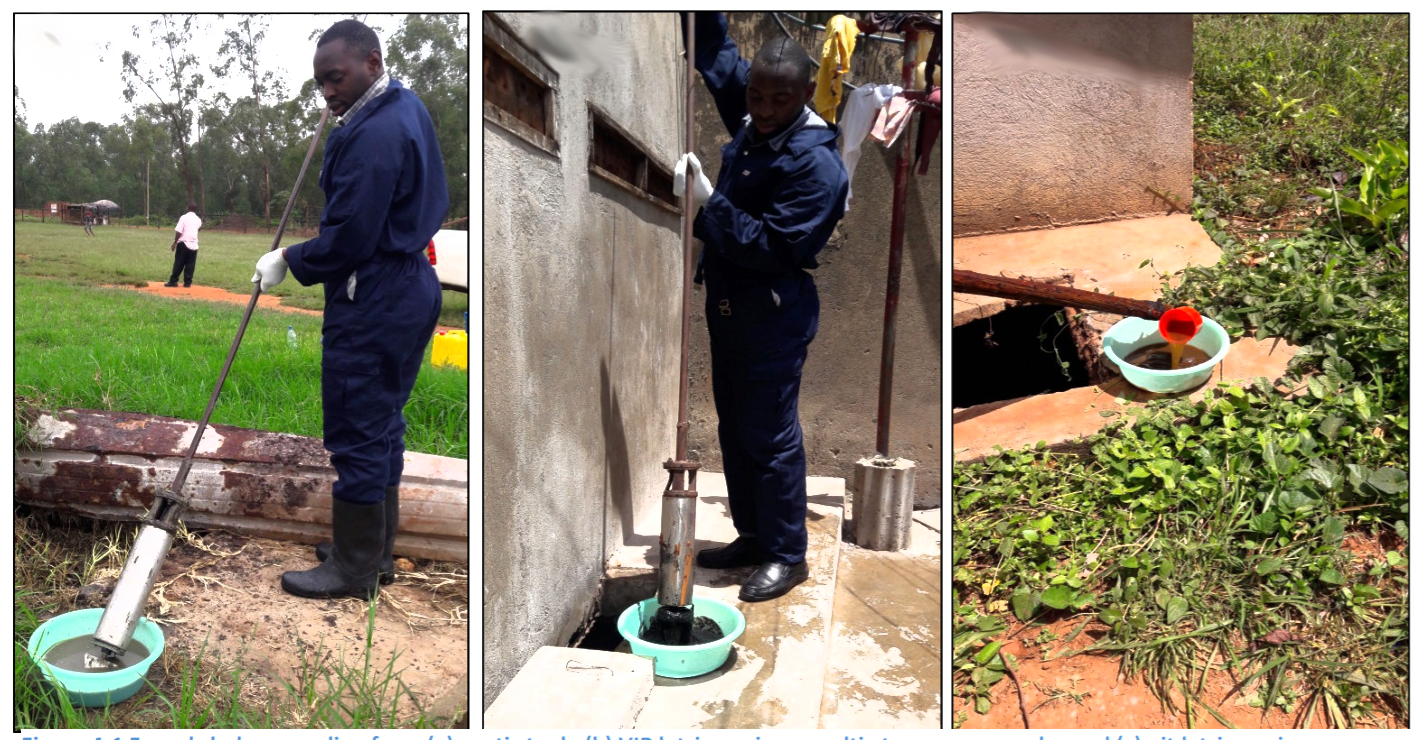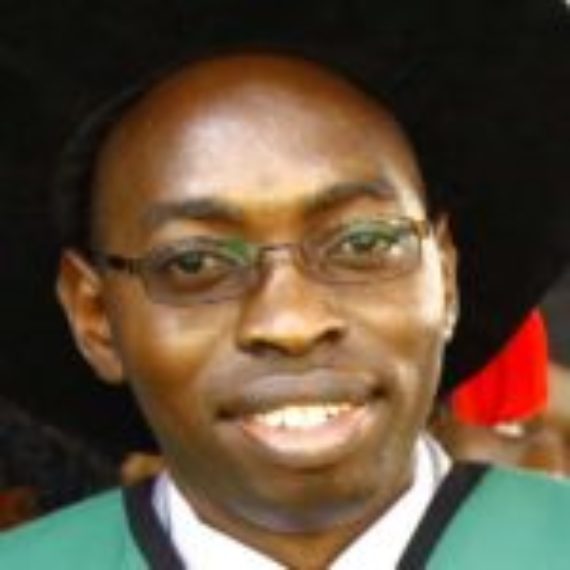As a Civil Engineer and Lecturer, I have participated in several knowledge and research related activities of the Global Sanitation Learning Alliance (GSLA) such as online courses on Faecal Sludge Management (FSM), Public Health Engineering in Humanitarian Context and completion of my PhD study with specialization in Faecal sludge management under Sanitation for Urban Poor (SaniUP) project hosted at IHE Delft. The knowledge and experiences gained has been beneficial to me and the people I have served in the areas of teaching, research and consultancy. Some details are presented as below:
- Teaching at Makerere University: At Department of Civil and Environmental Engineering (DCEE), I contributed in the expansion of the scope of the course in Public Health Engineering from not just focusing on topics on Management of Domestic Sewage (On-site Sanitation) to include other parts of the sanitation service chain (FSM). I was able to introduce students to other parts of the FSM chain including transportation, treatment and resource recovery from faecal sludge (FS). I have also managed to extend this to FSM practices and technologies in different contexts, mainly slums (urban poor) and refugee settlements. In addition, the DCEE has revised the curriculum (in 2018) and we have used this opportunity to include introduction to FSM service chain in the revised undergraduate course unit (now known as – Sanitary Engineering I). Also, during the revision of MSc curriculum, the knowledge gain from the FSM online course and FSM book was used to develop a detailed MSc course unit on Faecal sludge Management. This is now part of the curriculum for MSc in Civil Engineering, with a major in Environmental Engineering. Both the Undergraduate and the MSc revised curriculum have gone through the approval process of the University and the National Council for Higher education and will be in operation from August 2019.
 Faecal sludge sampling from septic tanks and pit latrines
Faecal sludge sampling from septic tanks and pit latrines
After completion of my PhD research in faecal sludge management, I was made to teach a section of MSc course unit called Wastewater Treatment and Reuse. A section assigned to me was Wastewater Sludge treatment and Reuse. I have taught and introduced to students the knowledge attained at my PhD training. At Makerere University, we have an MSc Course in Public Infrastructure Management (under the College of Business and Management Studies), where a course unit of Water Resources and Sanitation Management is taught. I was invited to give a hand in teaching Sanitation management, where i introduced students to topics in FSM book, such as: Ch 11 Operation, Maintenance and Monitoring of Faecal Sludge Treatment Plants; Ch 12 Institutional Framework for Faecal Sludge Management; Ch 13 Financial Transfers and Responsibility in FSM Chains; Ch 15 Stakeholder Analysis; and Ch 16 Stakeholder Engagement. I also, participated in Proposal Preparation Workshop at IHE Delft for Transfer of IHE Delft-based MSc in Sanitation and related short Courses to Makerere University. When successful, I was nominated to be the Coordinator for this program at Makerere University. Therefore, I have been confirmed to attend the Training of Trainers at IHE Delft for the period of April to November 2019.
- Research Activities: I have acted as a peer reviewer for articles on faecal sludge management in several ISI journals such as: Resources Conservation and Recycling; Chemosphere; Environmental Science and Pollution Research; Environmental Technology and Innovation; Journal of integrative Environmental Sciences; WASHDev and Science of the Total Environment. I supervised to completion two Undergraduate students researching in FSM field (graduated in January 2019) and I am currently supervising two; one in Ecological sanitation and the other in FS treatment with Lime and BSF larvae. In addition, I am supervising three MSc students working on different aspects of FSM such as drying and dewatering, treatment with black soldier fly larvae and FSM toolbox. I was appointed an internal examiner for Makerere University MSc thesis entitled: “Low-Cost faecal sludge Dewatering and Carbonization for the production of fuel briquettes.” One of my publications at PhD in FSM entitled “Optimization of centrifuge operating conditions for dewatering physically conditioned faecal sludge from urban slums” is used in creation of a box in the New Faecal sludge Management book under the Chapter of Methods in Faecal Sludge Analysis.
- Consultancy Services: I have been a consultant with Kampala Capital City Authority and GIZ on assessment of WASH status and development of appropriate design of sanitation and handwashing facilities in several public primary schools in Kampala, under Sanitation for Millions (S4M) project. I have provided Consultant services in Faecal sludge and solid waste study in Imvepi refugee settlement, to evaluate opportunities of incorporating ‘Sanitation Waste to Value’ concept. A Training-of-Trainers and Co-facilitation of a training on “Developing businesses in resource recovery and reuse” held at IWMI on July 19 to 27, 2018, in Colombo, Sri Lanka together with the knowledge from FSM Book, online course on Public Health Engineering in Humanitarian Context were Key in the successful completion of this work. Using PhD knowledge and online course in FSM, participated in the Design Review of Faecal sludge treatment plants for Kiboga and Nakasongola Town Councils, where I was responsible for faecal sludge sampling, characterization and proposal of treatment units.
 A new Faecal sludge Treatment Plant for Bidibidi refugee settlement
A new Faecal sludge Treatment Plant for Bidibidi refugee settlement
I believe in sanitation knowledge application for the benefit of human kind
